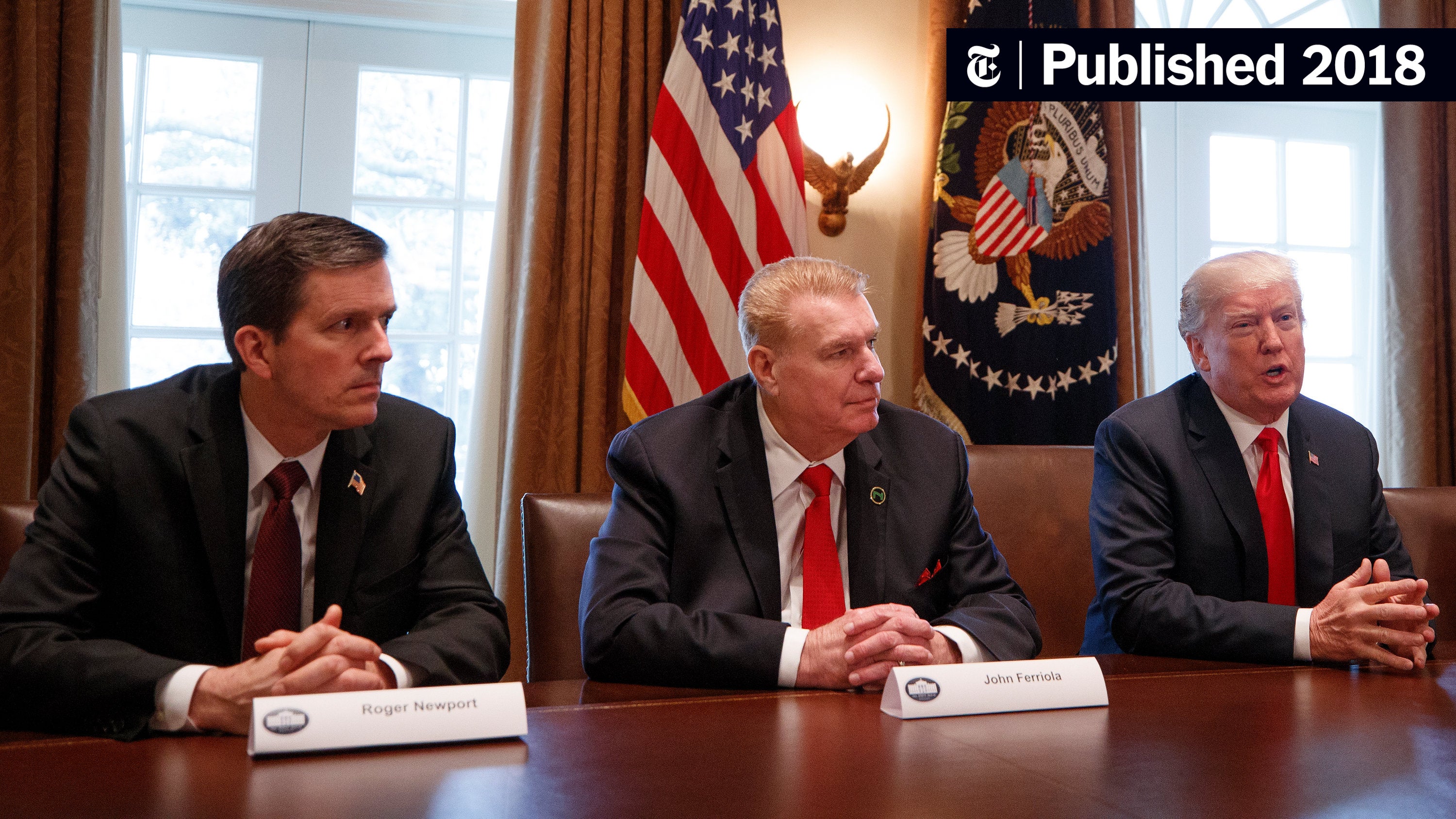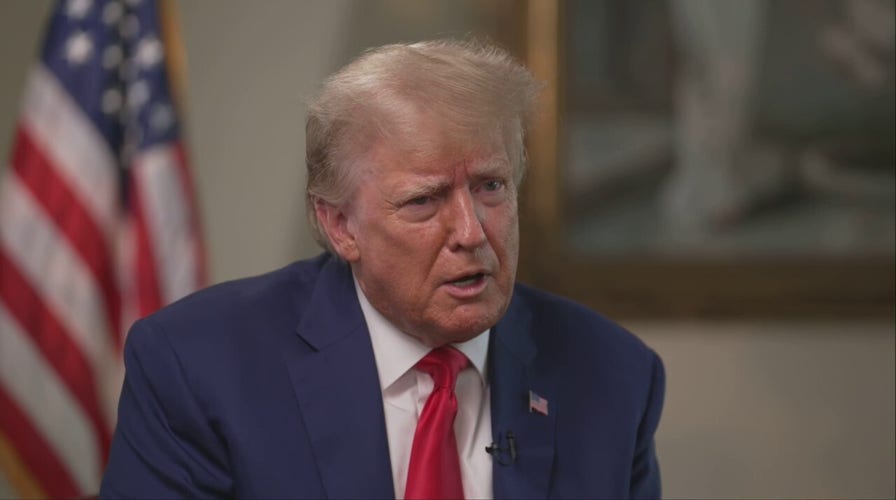Assessing The Impact Of Trump's Trade Offensive On US Financial Primacy

Table of Contents
The Tariffs and Trade Wars: Initial Impacts on Global Markets
The Trump administration initiated numerous major trade disputes, most notably with China and the European Union. These disputes involved the imposition of substantial tariffs on a wide range of goods, triggering retaliatory measures from affected countries. This escalation of protectionist policies created a period of significant uncertainty in global markets.
- Increased uncertainty in global markets: Businesses faced challenges in forecasting future costs and investment decisions, leading to decreased investment and slower economic growth.
- Short-term volatility in currency exchange rates: The US dollar experienced fluctuations as investors reacted to the unfolding trade tensions, reflecting shifting confidence in the US economy.
- Impact on supply chains and global trade volumes: Disruptions to established supply chains increased costs and reduced the efficiency of global trade, impacting businesses worldwide.
- Initial reactions from international financial institutions: The International Monetary Fund (IMF) and the World Trade Organization (WTO) expressed concerns about the negative consequences of escalating trade conflicts for global economic stability.
These initial impacts significantly affected the perception of the US dollar's stability. While some argued that the strength of the dollar remained largely unaffected, others pointed to increased volatility as a sign of weakening confidence. Data from this period shows a noticeable increase in currency exchange rate fluctuations, alongside a decline in global trade volumes – a direct consequence of the imposed tariffs and subsequent trade wars. For example, studies showed a correlation between the imposition of specific tariffs and a decline in specific bilateral trade flows.
Long-Term Effects on US Dollar Hegemony
The Trump administration's trade offensive raises questions about the long-term consequences for the US dollar's reserve currency status. The potential long-term effects challenge the traditional dominance of the US dollar in the global financial system.
- Shift in global trade patterns away from reliance on the US dollar: Countries might seek to reduce their dependence on the US dollar for international transactions to mitigate the risk associated with trade disputes.
- Growth of alternative payment systems (e.g., SWIFT alternatives): The search for alternatives to the Society for Worldwide Interbank Financial Telecommunication (SWIFT) system, particularly among nations facing US sanctions, increased, potentially diminishing the dollar's role in international payments.
- Increased diversification of foreign exchange reserves by other countries: Central banks might diversify their foreign exchange reserves away from US dollar assets, seeking greater resilience to potential future trade conflicts.
- Impact on US Treasury bond yields and demand: Uncertainty surrounding US trade policy could affect investor confidence in US Treasury bonds, potentially impacting yields and demand.
These long-term effects could gradually erode the US dollar's global dominance. Economists and financial analysts have offered diverse perspectives on the extent of this potential erosion, with some arguing that the shift will be gradual and limited, while others believe the damage to the dollar's reputation as a stable and reliable currency could be more significant.
The Role of Geopolitical Factors
The impact of the trade war was interwoven with broader geopolitical tensions.
- Impact of sanctions and counter-sanctions: The imposition of sanctions by the US, and subsequent retaliatory sanctions by other countries, further complicated global trade relationships and increased uncertainty.
- The rise of competing economic powers (China): China's increasing economic influence presented a challenge to US financial primacy, and the trade war arguably accelerated this trend.
- The influence of international alliances and agreements: The trade war strained relationships within existing international alliances and raised questions about the effectiveness of multilateral trade agreements.
These geopolitical factors interacted significantly with the trade offensive, creating a complex interplay of economic and political pressures that shaped the outcome. The combination of trade disputes and geopolitical tensions intensified uncertainty and undermined the confidence that underpins the US dollar's global status.
Domestic Economic Consequences and their Impact on Financial Primacy
The Trump administration's trade offensive also had significant domestic economic consequences, impacting the overall global perception of US financial stability.
- Inflationary pressures: Tariffs increased the cost of imported goods, contributing to inflationary pressures within the US economy.
- Impact on specific US industries: Certain US industries benefited from protectionist measures while others suffered from retaliatory tariffs and disruptions to global supply chains.
- Changes in consumer prices and spending: Increased costs for imported goods affected consumer prices and spending patterns, influencing overall economic growth.
- Government debt levels: The economic consequences of the trade war could have influenced government debt levels and fiscal policy decisions.
These domestic consequences influenced the global perception of US financial stability. The inflationary pressures and potential for slower economic growth created uncertainty and could have negatively impacted investor confidence.
Conclusion
Trump's trade offensive had a mixed impact on US financial primacy. While the US dollar's dominance didn't immediately collapse, the trade wars created significant short-term market volatility and raised concerns about long-term structural shifts. The initial impacts included increased market uncertainty and currency fluctuations. Long-term effects included potential shifts in global trade patterns away from dollar reliance, the exploration of alternative payment systems, and diversification of foreign exchange reserves. Geopolitical tensions further complicated the situation, while the domestic economic consequences, including inflationary pressures and impacts on specific industries, further influenced the global perception of US financial stability. Whether these effects ultimately prove to be detrimental or beneficial to the US dollar's long-term global standing remains a subject of ongoing debate and requires continued monitoring. Further research is needed to fully understand the lasting impact of Trump's trade offensive on US financial primacy. Continued monitoring of global financial markets and economic indicators is crucial for assessing the ongoing effects of this period of significant geopolitical and economic upheaval. Stay informed about the evolving landscape of global finance and the enduring implications of Trump’s trade policies on the US dollar’s dominance.

Featured Posts
-
 Los Angeles Palisades Fire A List Of Celebrities Whose Homes Were Damaged Or Destroyed
Apr 22, 2025
Los Angeles Palisades Fire A List Of Celebrities Whose Homes Were Damaged Or Destroyed
Apr 22, 2025 -
 Ftc To Appeal Microsoft Activision Deal What Happens Next
Apr 22, 2025
Ftc To Appeal Microsoft Activision Deal What Happens Next
Apr 22, 2025 -
 Ai Digest How To Create A Compelling Podcast From Mundane Scatological Data
Apr 22, 2025
Ai Digest How To Create A Compelling Podcast From Mundane Scatological Data
Apr 22, 2025 -
 Kyiv Faces Trumps Ukraine Peace Plan A Ticking Clock
Apr 22, 2025
Kyiv Faces Trumps Ukraine Peace Plan A Ticking Clock
Apr 22, 2025 -
 The Bof A View Why Current Stock Market Valuations Arent A Worry
Apr 22, 2025
The Bof A View Why Current Stock Market Valuations Arent A Worry
Apr 22, 2025
